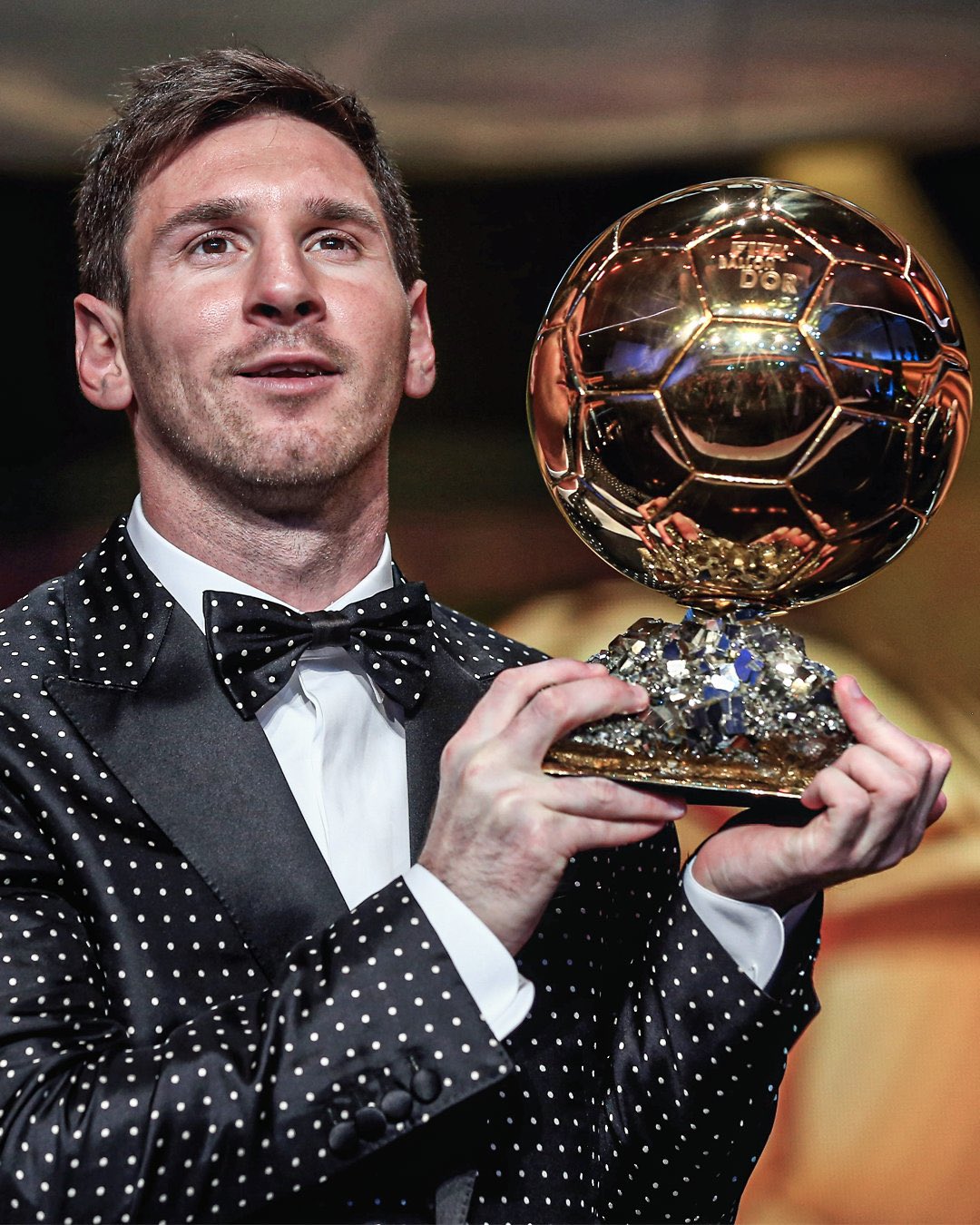In the illustrious history of football’s most coveted individual prize, no story resonates more profoundly than Lionel Messi’s unprecedented dominance of the Ballon d’Or. As the football world reflects on the legacy of this prestigious award in the 21st century, Messi’s record-breaking eight victories stand as a testament to his extraordinary impact on the beautiful game, with his 2015 triumph widely regarded as the pinnacle of individual excellence in modern football.
Messi’s journey to becoming the most decorated Ballon d’Or recipient began in 2009, when he claimed his first golden ball by an overwhelming margin, finishing 240 points ahead of his closest rival, Cristiano Ronaldo. This victory, earned through his instrumental role in Barcelona’s historic treble-winning season, set the stage for what would become an era of unprecedented individual dominance in football history.
The Argentine maestro’s influence on the sport reached new heights in 2011, a year that saw him produce some of the most memorable performances in Champions League history. His sublime display in Barcelona’s victory over Manchester United at Wembley prompted Sir Alex Ferguson to place him among football’s immortals, declaring that Messi, like Pelé and Diego Maradona before him, belonged to the rare breed of players who could excel in any era of the sport.
The 2012 campaign perhaps best exemplified Messi’s otherworldly talents, as he shattered Gerd Müller’s seemingly unbreakable record by scoring an astounding 91 goals in a calendar year. This remarkable achievement helped him secure his fourth consecutive Ballon d’Or, despite Barcelona failing to win either La Liga or the Champions League that season. It was a year that demonstrated how individual brilliance could transcend team achievements in the minds of voters.
However, it was Messi’s 2015 Ballon d’Or victory that many consider the most significant of his career. This triumph came after two years of watching Cristiano Ronaldo claim the prize, making it even more special as he prevented his great rival from drawing level with him on four awards. That season saw Messi evolve into an even more complete player, combining his scoring prowess with enhanced playmaking abilities that led to his involvement in an incredible 137 goals across the calendar year.
The evolution of the Ballon d’Or voting process has often sparked debate, particularly regarding the balance between individual excellence and team success. The 2023 edition, which Messi won largely due to his World Cup heroics with Argentina, highlighted how major international tournaments can influence the outcome. His performance in Qatar, where he finally emulated Diego Maradona by leading Argentina to World Cup glory, effectively sealed his eighth Ballon d’Or, despite Erling Haaland’s remarkable 52-goal season with Manchester City.
The award’s history has not been without controversy. The 2013 ceremony remains particularly contentious, with Franck Ribery’s supporters still questioning the decision to extend the voting period, which ultimately benefited Cristiano Ronaldo. Similarly, the cancellation of the 2020 award due to the Covid-19 pandemic denied Robert Lewandowski what many believe would have been a deserved victory after his 55-goal season with Bayern Munich.
Beyond the Messi-Ronaldo duopoly, other winners have left their mark on the award’s legacy. Luka Modric’s 2018 victory was particularly significant as it broke the decade-long stranglehold of football’s two dominant figures. His triumph, earned through stellar performances in Real Madrid’s Champions League victory and Croatia’s surprising World Cup final appearance, proved that midfield excellence could still be recognized in an era dominated by attacking statistics.
The award has also reflected football’s evolving tactical landscape. Fabio Cannavaro’s 2006 victory celebrated defensive excellence, while Karim Benzema’s 2022 win acknowledged the importance of all-round forward play in modern football. The most recent winner, Rodri in 2024, marked a significant shift by recognizing the crucial role of defensive midfielders in the contemporary game.
Throughout its modern history, the Ballon d’Or has served as more than just an individual accolade; it has become a barometer for football excellence and a reflection of the sport’s evolution. The voting patterns have shown how the importance of different competitions has shifted, with Champions League performances often carrying as much weight as World Cup displays in non-tournament years.
As football continues to evolve, Messi’s eight Ballons d’Or stand as a benchmark that may never be surpassed. His victories span different eras of the sport, from the tiki-taka revolution at Barcelona to his final crowning achievement with Argentina’s World Cup victory. Each win tells a story not just of individual brilliance, but of football’s constant evolution and the changing metrics by which greatness is measured.
The legacy of the 21st century Ballon d’Or will forever be intertwined with Messi’s mastery, serving as a reminder that while football is fundamentally a team sport, individual genius can sometimes transcend collective achievement to create moments and careers that define generations. As the sport moves forward, future winners will inevitably be measured against the standard set by the diminutive Argentine who turned football excellence into an art form.



